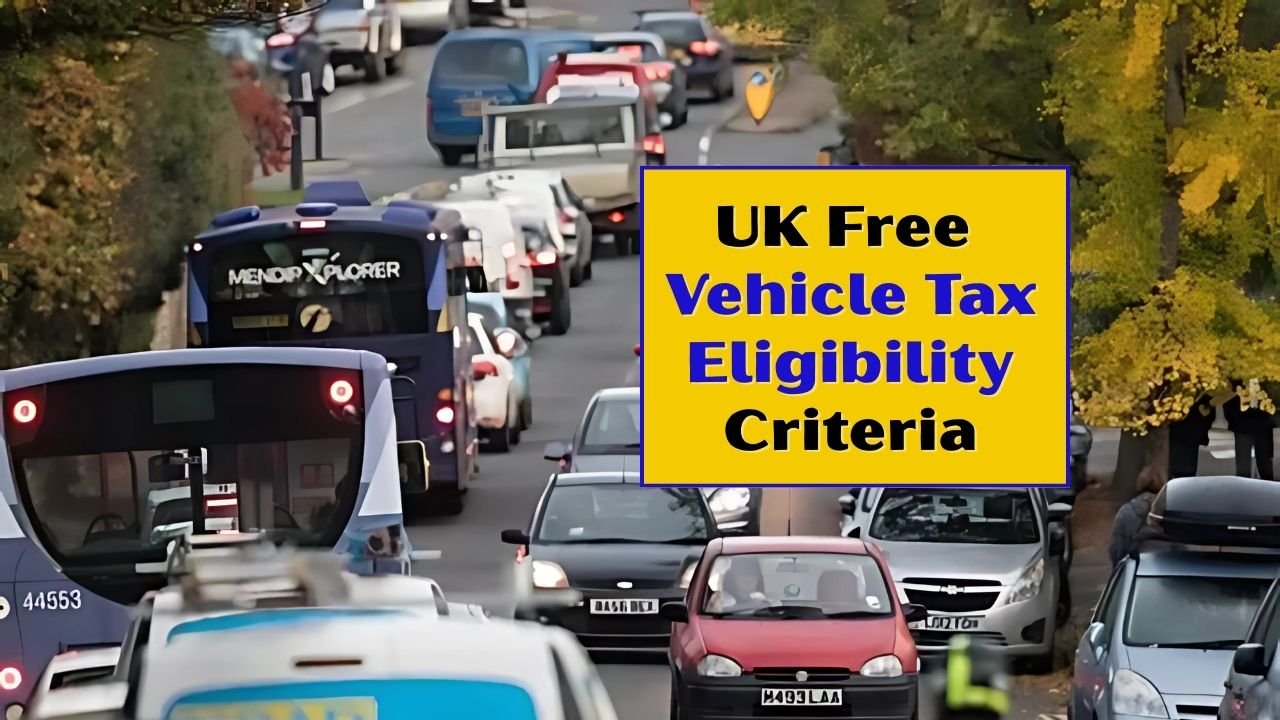Join on WhatsApp
Get the latest updates directly on WhatsApp – motivation, news & more!
Vehicle tax, commonly known as Vehicle Excise Duty (VED), is a mandatory cost for most drivers in the UK. However, certain groups of people are entitled to either free vehicle tax or significant exemptions. In 2025, the UK government continues to provide tax relief to support vulnerable groups, encourage greener transport, and make motoring more affordable for those who need it most.
This guide explains in detail who qualifies for free vehicle tax, the eligibility rules, the application process, and how you can check if you meet the criteria.
What is Free Vehicle Tax in the UK
Free vehicle tax means that eligible drivers are exempt from paying the annual Vehicle Excise Duty. This can save motorists hundreds of pounds each year, depending on their car type and emissions. The exemption is not automatic for everyone; it must be claimed and applied through the DVLA once eligibility is confirmed.
The policy is designed to ease financial burdens on people with disabilities, older drivers, and those using environmentally friendly vehicles.
Who Qualifies for Free Vehicle Tax in 2025
The UK government has set out clear categories of individuals who can receive full exemption from paying vehicle tax. These include:
1. Disabled People Receiving Certain Benefits
Drivers who receive specific disability-related benefits are entitled to free vehicle tax. These benefits include:
- Higher Rate Mobility Component of Disability Living Allowance (DLA)
- Enhanced Rate of the Mobility Component of Personal Independence Payment (PIP)
- War Pensioners’ Mobility Supplement
- Armed Forces Independence Payment
In these cases, the free tax applies to only one vehicle per person, and that vehicle must be used for their personal transportation needs.
2. Vehicles Used by Organisations Supporting Disabled People
Charities or organisations that provide transport services for disabled individuals can also qualify for vehicle tax exemption. The vehicles must be used strictly for transporting disabled people and not for commercial purposes.
3. Historic Vehicles
Owners of classic or historic vehicles more than 40 years old are eligible for free road tax. For 2025, this means cars registered before 1 January 1985 can qualify. The exemption encourages the preservation of vintage vehicles and reduces costs for collectors.
4. Electric Vehicles Registered Before April 2025
Currently, all fully electric cars are exempt from paying vehicle tax. However, from April 2025, new rules will require most electric vehicles to pay VED. Only older EVs registered before this date will remain exempt, meaning they continue to enjoy free vehicle tax under transitional arrangements.
5. Mobility Scooters and Powered Wheelchairs
Invalid carriages such as mobility scooters and powered wheelchairs that are registered with the DVLA are fully exempt from vehicle tax.
How to Apply for Free Vehicle Tax
Claiming your exemption is a straightforward process, but you must provide the correct documents to the DVLA. The steps include:
- Check Eligibility – Ensure you qualify under one of the categories mentioned above.
- Prepare Documents – Gather proof of eligibility, such as your benefit award letter or proof of historic vehicle age.
- Apply Online or by Post – Applications can be made through the DVLA website or by sending documents via post.
- Visit a Post Office (if required) – In some cases, especially when applying for the first time, you may need to visit a Post Office that deals with vehicle tax.
- Confirmation of Exemption – Once approved, your vehicle will be marked as exempt in the DVLA system, and you will no longer need to pay annual tax.
Important Rules for Claiming Free Vehicle Tax
- Only one vehicle per eligible person can be exempt at a time.
- If the disabled person is not the driver, the exemption still applies as long as the vehicle is used for their benefit.
- You must reapply if your eligibility benefits change or expire.
- Even if you pay zero tax, you must still register your vehicle annually with the DVLA.
Benefits of Free Vehicle Tax
The exemption scheme brings multiple benefits, including:
- Financial savings on annual motoring costs
- Support for disabled individuals to maintain independence
- Incentives to switch to greener, zero-emission vehicles
- Encouragement to preserve and maintain historic cars
What Happens if You No Longer Qualify
If your circumstances change and you no longer meet the eligibility requirements, you must notify the DVLA immediately. Continuing to use a free vehicle tax exemption without entitlement could result in fines and penalties. In such cases, you will be required to pay the correct VED rate for your vehicle.
Future Changes to Vehicle Tax Rules
The government is gradually reforming the road tax system to reflect environmental priorities. From April 2025, electric vehicle owners will start paying tax, although historic cars and disabled drivers will continue to receive full exemptions. It is expected that more updates will be announced in the coming years, so drivers should always check the latest DVLA guidance.
Final Thoughts
Free vehicle tax in the UK is a valuable support system that helps millions of people, especially disabled drivers and those with historic or eco-friendly vehicles. The scheme in 2025 remains crucial for reducing financial pressure on vulnerable groups while also aligning with the government’s long-term transport and environmental policies.
If you think you qualify, make sure to apply through the correct DVLA channels, keep your documents updated, and check for any changes in future rules. Taking advantage of this exemption can provide significant savings and make driving more affordable.



